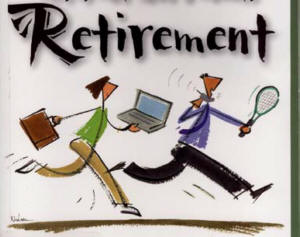So Why is the Market Setting New Highs?
Dow Jones Industrial Average Closes Above 13,000 For the First Time
April 28, 2007
By: Jerry Cole - Retirement, Investment

Let's hope this market action is a precursor to an increase in economic growth. Retirement investments will reap the rewards.
As the Dow closed above 13000 for the first time this week, many investors have found it difficult to understand why. Hasn't the Federal Reserve slowed the economy down significantly by increasing interest rates? Isn't the real estate market in the tank? Hasn't a lot of our industry gone to other parts of the world? So why is the market setting new highs?
There is no single answer to this question. But if there is a single word, I would call it EARNINGS! Corporate profits that have been announced so far for the first quarter of 2007 have come in much higher than expected. Some of the large companies that have announced their profits are multinational. Companies such as Honeywell International, Caterpillar, and 3M have a large percentage of sales overseas. 3M for example booked 61% of its sales outside the U.S.in 2006, up from 53% five years ago. The weaker dollar has helped these companies because that makes their sales overseas worth more when those sales are converted into dollars.
When a company can show a healthy increase in earnings at the bottom line, the market will increase the price it puts on the company's stock. The market prices the stock based on a multiple of the earnings. This is commonly shown as a ratio of price to earnings or the P/E ratio. The P/E ratio is perhaps the most used yardstick in evaluating a stock. The ratio varies from industry to industry. It also varies with the rate of growth of a company.
Analysts also use the inverse of the P/E ratio to get an earnings yield. Say the P/E ratio for the S&P 500 is 20. Flipping this ratio (1/20) would give us an earnings yield of 5%. This enables us to compare stock and bonds to see which is more attractive. By this measure some believe that stocks around the world are cheap relative to cash and fixed income. Over long periods, the spread between yields of stocks and bonds has averaged close to zero. Market theory predicts that if the yield on one asset is materially higher than another, money will flow to the higher yielding asset until the respective yields converge.
Corporate earnings have chalked up year-over-year double digit gains in 19 consecutive quarters. And they appear to be adding to the streak with the first quarter of 2007. There are however, more companies to report and many of them are more exposed to consumer spending such as restaurants and home builders. Also, today's report of the Gross Domestic Product or GDP, which measures total goods and services output within U.S. borders, increased a weaker than expected 1.3% in the three months from January through March. Wall Street had been expecting 1.8% growth.
The GDP report makes this the fifth consecutive quarter of annualized growth below 3%. Some economists believe the slow growth will continue through 2007. This may prompt the Fed to cut rates later in the year and since the market always looks ahead, it may be seeing continued improvement in corporate earnings due to lower borrowing costs.
The Democrats won back both the House and the Senate in the mid-term elections. But with both chambers almost evenly divided and the White House in Republican hands, the passage of significant legislation is very unlikely. This is a very favorable situation for stocks.
Let's hope this market action is a precursor to an increase in economic growth. You gotta have growth!
I invite your questions.
E-Mail Jerry Cole
(The opinions expressed are solely those of the author and not Gen worth Financial Securities Corporation.)